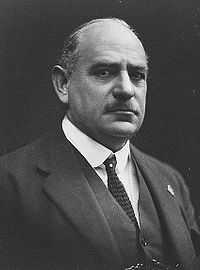 Martin Flanagan
Martin Flanagan
LEGENDS are like earthquakes. They happen. Afterwards, we try to understand the forces that created them. Anzac is an Australian legend that has a roughly analogous place to the Civil War in the American psyche. Both are stories of young nations encountering the horrors of modern warfare for the first time – that is, wars fought with repeating rifles and machineguns and appalling casualty rates. Both conflicts represent massive and unprecedented change.
As popular culture, however, what the Civil War has that Anzac doesn’t is the view of both sides. In 1983, when his yacht, Australia 2, won the America’s Cup, owner Alan Bond acknowledged that at one stage his crew had been losing but added “it was just like Gallipoli, and we won that one”.
It would be interesting to know exactly how that comment was received in lounge rooms across Australia. Did it feel “right” to most who heard it? My guess is that it did.
Gallipoli was a military disaster. We should note that in justice to the young men who died there. Do we owe them less than we owe those who die in bushfires like Black Saturday? We should also note it in justice to future generations. The voices that urged Australia into the invasion of Iraq were of the same character as those that propelled Australia to Gallipoli in 1914. In the context of Anzac, we also need to note the extent of the debacle to appreciate the stature of the major Australian characters who emerged from it – like, for example, General Sir John Monash.
The planning at Gallipoli was a farce. Six weeks before the landing, by way of military intelligence, the British officer commanding the operation, General Sir Ian Hamilton, was equipped with two small guidebooks on Turkey and a text book on the Turkish army. Ellis Ashmead Bartlett, an English journalist covering the campaign who correctly foresaw from the outset that it was doomed, said intelligence would be acquired “at the point of a bayonet”. And it was.
Monash was an engineer. Born in West Melbourne to Jewish German immigrants, Monash was of the century just beginning, a man who understood steel and concrete and modern automation. His battles were meticulously planned. The British prime minister Lloyd George described Monash “as the most resourceful general in the whole of the British Army”. Monash is a giant figure in Australian history.
Propaganda was involved in shaping the popular view of Gallipoli from the start. Take the case of John Simpson Kirkpatrick, the man with the donkey. Within six weeks of his death, he had been conscripted into the propaganda war, a newspaper report describing him as ”a six-foot Australian” with ”a woman’s hands” who said in a British-Australian accent, ”I’ll take this fellow next.”
Simmo was a five-foot-eight Geordie with a stoker’s hands who spoke in dialect and had fierce Labor politics. His first biographer, a fan of Churchill and acquaintance of Sir Robert Menzies, stripped him of his politics. There was no mention of boozing or fighting. The real Simmo was left in a grave at Gallipoli.
What the Australians won at Gallipoli was huge respect, including from their enemy. It really is time we started making clear to young Australians that the Anzacs didn’t die protecting Australia from being invaded. Rather, we were invading a country on the other side of the world – to wit, Turkey – with whom we had no difference as a people outside the larger politics of the day.
Surely it is time we owed Turkey, and Turkish Australians, that respect. Look at the respect Turkey shows our dead.
I ask this question most seriously. Does any country in the world – other than Turkey – permit a people who tried to invade it to commemorate the fact of that attempted invasion on their shores each year? I know of not a single one. Imagine if the descendants of the Japanese pilots who bombed Darwin held an emotional service beneath the Japanese flag on the shores of Darwin Harbour each year.
My impression is that within Turkey the legend of Anzac got absorbed into the legend of Ataturk, the so-called father of modern Turkey, who, as a young man, championed the Turkish defence at Gallipoli.
It was Ataturk who declared to the mothers of Australia that their sons lay in friendly soil. A group of about 80 Turkish Australians march each year in Melbourne on Anzac Day. Anzac Day would not be the same without them.
Martin Flanagan is a senior writer.
, April 24, 2010
 Oguz Ozge
Oguz Ozge

